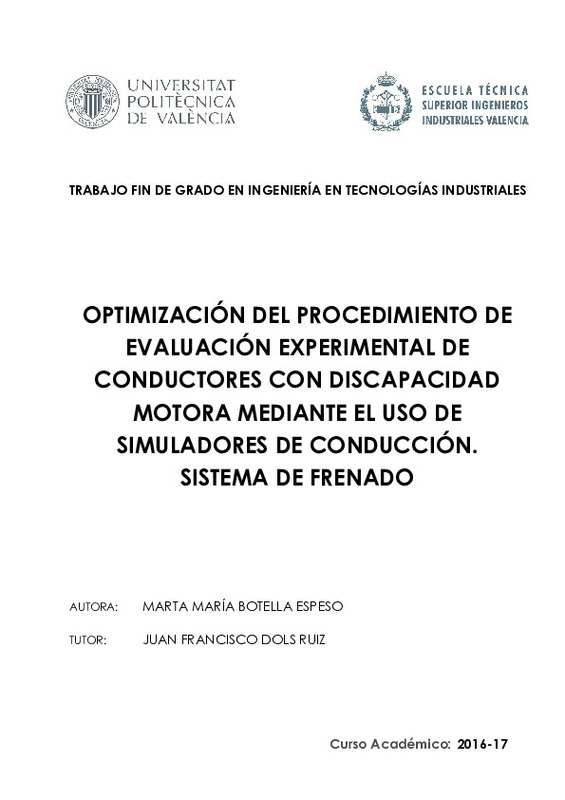JavaScript is disabled for your browser. Some features of this site may not work without it.
Buscar en RiuNet
Listar
Mi cuenta
Estadísticas
Ayuda RiuNet
Admin. UPV
Optimización del procedimiento de evaluación experimental de conductores con discapacidad motora mediante el uso de simuladores de conducción. Sistema de frenado
Mostrar el registro completo del ítem
Botella Espeso, MM. (2017). Optimización del procedimiento de evaluación experimental de conductores con discapacidad motora mediante el uso de simuladores de conducción. Sistema de frenado. http://hdl.handle.net/10251/85415.
Por favor, use este identificador para citar o enlazar este ítem: http://hdl.handle.net/10251/85415
Ficheros en el ítem
Metadatos del ítem
| Título: | Optimización del procedimiento de evaluación experimental de conductores con discapacidad motora mediante el uso de simuladores de conducción. Sistema de frenado | |||
| Autor: | Botella Espeso, Marta María | |||
| Director(es): | ||||
| Entidad UPV: |
|
|||
| Fecha acto/lectura: |
|
|||
| Resumen: |
[ES] El TFG que se presenta a continuación se aplicará al estudio del procedimiento de evaluación de
conductores que requieren el uso de adaptaciones de mandos convencionales para la conducción de un
vehículo automóvil.
En ...[+]
[EN] The final degree project, which is presented below, is directly applied to the study of the Disabled Drivers
Evaluation Process, that require the use of conventional control adaptations for a real driving motor ...[+]
|
|||
| Palabras clave: |
|
|||
| Derechos de uso: | Reserva de todos los derechos | |||
| Editorial: |
|
|||
| Titulación: |
|
|||
| Tipo: |
|
recommendations
Este ítem aparece en la(s) siguiente(s) colección(ones)
-
ETSII - Trabajos académicos [10404]
Escuela Técnica Superior de Ingenieros Industriales







